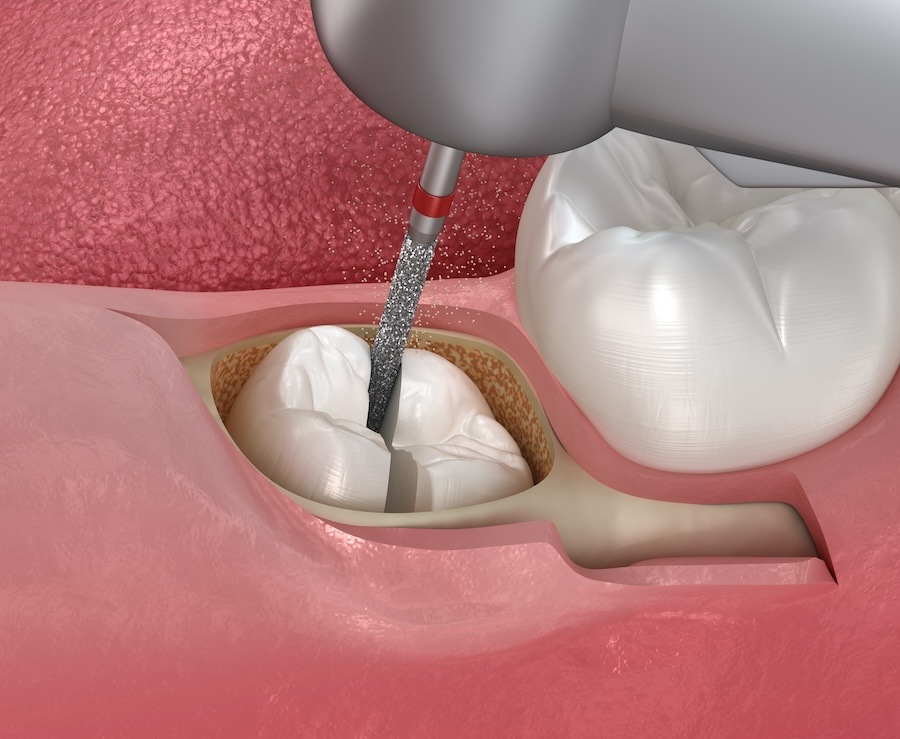Root canals don’t have the best reputation. Just the sound of those words can make people nervous. But in most cases, the pain that makes you need a root canal is worse than the procedure itself. If you’re going through one, or about to, there are ways to make the pain easier to handle.
Below are tips that help before, during, and after the treatment. Whether you’ve had a root canal before or this is your first one, these steps can help make it less stressful.
Understand Where the Pain Comes From
Root canal pain usually comes from the infection inside your tooth. When a tooth gets badly damaged or decayed, bacteria can enter the pulp. The pulp is where the nerves and blood vessels live. Once infected, it can swell and push against the tooth walls, which causes pain.
The root canal removes this infected pulp and cleans the area. So technically, it fixes the source of the pain. But after the treatment, you might still feel sore for a few days.
Know What to Expect During the Procedure
One of the reasons people get anxious about root canals is not knowing what to expect. But the truth is, modern root canals aren’t as painful as people think. Dentists use local anesthesia to numb the area. Most people say it feels like getting a filling.
If you’re looking for a dentist in Ottawa who makes you feel calm and walks you through the steps, find one who has good reviews and experience with nervous patients. A friendly approach and a steady hand go a long way in making you feel safe in the chair.
Take Pain Relief Seriously After the Procedure
Once the numbness wears off, your tooth and jaw may feel sore. That’s normal. You can manage it with over-the-counter pain medicine like ibuprofen or acetaminophen. Your dentist might also give you a prescription for stronger pain relief if you need it.
Don’t wait until the pain gets bad. Take the medicine on time as advised. Also, avoid chewing hard foods on that side of your mouth for a few days. It helps the area heal faster.
Use Ice Packs to Reduce Swelling
After your root canal, your cheek may puff up a bit. That’s because of inflammation around the treated tooth. An easy way to bring it down is to use an ice pack. Just wrap it in a thin towel and press it against your cheek for 15 to 20 minutes at a time.
Do this a few times on the day of the procedure. It numbs the area and brings swelling down.
Stick to Soft Foods
For the first couple of days, avoid crunchy, spicy, or sticky foods. Soft foods like mashed potatoes, yogurt, scrambled eggs, and soups are easier on your teeth and gums.
Hard chewing puts pressure on the treated tooth, which might slow healing or even damage the temporary filling if one was placed.
Don’t Skip Your Follow-Up Appointment
Sometimes, root canals need more than one visit. Even if your pain is gone, go back for your follow-up. The dentist will check the healing, make sure there’s no leftover infection, and place a crown or permanent filling if needed.
Skipping this step can lead to problems later, like reinfection or tooth fracture.
Keep Your Mouth Clean
Oral hygiene is always important, but after a root canal therapy, it’s a must. Keep brushing and flossing gently around the area. Rinse with salt water if the dentist suggests it. Keeping bacteria out of your mouth lowers your risk of new infections.
Make sure you don’t brush too hard near the treated tooth—be gentle until it fully heals.
Rest and Give It Time
Don’t expect to feel 100% right after the treatment. Your body needs time to recover. Rest as much as you can and avoid stressful activities for a day or two.
If the pain lasts longer than a few days or gets worse, call your dentist. That could mean there’s an issue that needs attention.
Watch for Signs of Trouble
A little pain is normal after a root canal. But some signs mean something’s not right. Call your dentist if you notice:
-
Swelling that gets worse after 2–3 days
-
Pain that doesn’t go away or gets stronger
-
Pus or a bad taste in your mouth
-
Fever or chills
It’s better to get help early than wait for it to become a bigger problem.
Ask About Sedation Options if You’re Nervous
If fear of pain is keeping you from getting a root canal, talk to your dentist about sedation. Some offices offer nitrous oxide (laughing gas) or oral sedatives to help calm your nerves.
You stay awake, but feel more relaxed. It makes the whole experience feel shorter and easier.
Pain Now Means Less Pain Later
One thing to keep in mind is that root canals don’t cause the pain—they treat it. Yes, there may be a little soreness after, but it’s nothing compared to the constant ache of an infected tooth.
Avoiding the root canal can lead to worse problems like abscesses or losing the tooth. Taking care of it now saves you more pain in the long run.
Root Canals Are More Common Than You Think
Millions of root canals are done every year. You’re not alone, and most people go through it without major problems. The key is to stay calm, follow the aftercare steps, and stay in touch with your dentist.
If your dentist is experienced and takes the time to explain things, it helps a lot. Look for someone who answers your questions and doesn’t rush you.
Your Ottawa Dental Team Matters
If you’re in Ottawa and need help with a root canal or any dental work, the team you choose makes all the difference. At Dr. Sirwan Dental, we take the time to listen, explain every step, and make sure you’re as comfortable as possible. We know how nerve-wracking dental pain can be—and we’re here to help you through it, every step of the way.
We’ve treated patients across Ottawa who came in afraid but left smiling. Whether it’s your first root canal or your third, our goal is to make the process smooth, gentle, and clear. Need to talk to someone before your visit? Call us—we’re always here to answer your questions and ease your mind.






